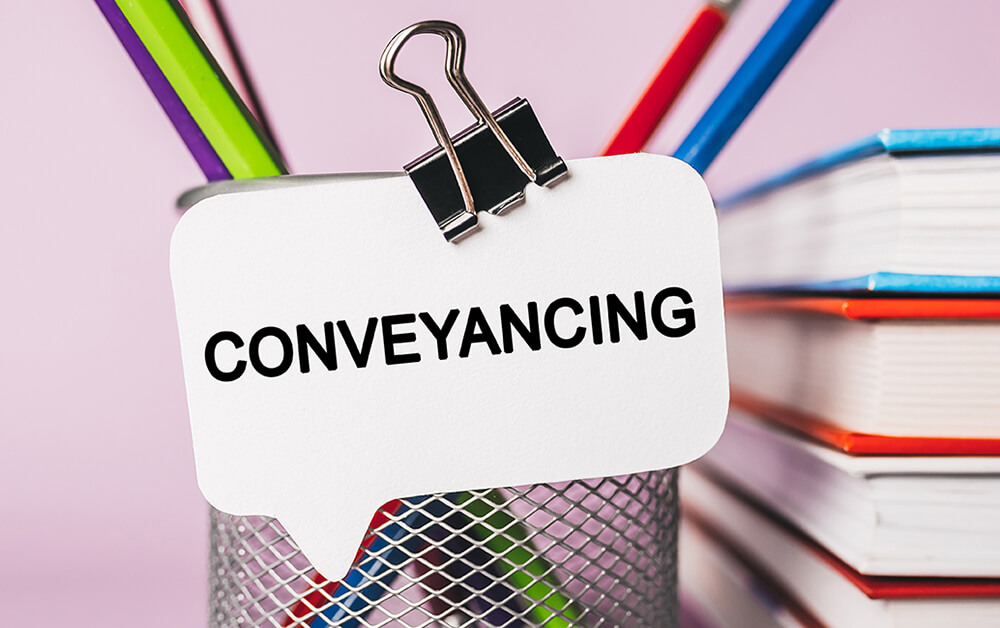Conveyancing fees are an essential part of any real estate transaction. They play a crucial role in ensuring that the legal aspects of the property transfer are taken care of. Understanding what these fees cover and how they are calculated is essential for both buyers and sellers. In this article, we will delve into the different components that make up conveyancing fees and explore the factors that influence them. We will also provide tips on how to budget for these fees and offer insights on choosing the right conveyancer for your needs.
Understanding Conveyancing Fees
Before we dive into the specifics, let’s first define conveyancing fees. Simply put, conveyancing fees refer to the charges associated with the legal transfer of property ownership from one party to another. These fees are paid to a conveyancer who handles the legal aspects of the transaction. Melbourne conveyancers are licensed professionals who specialize in property law and assist both buyers and sellers throughout the transfer process.
Conveyancing fees cover a wide range of services provided by the conveyancer. These services include conducting title searches, preparing legal documents, liaising with the relevant authorities, and facilitating the settlement process. By paying these fees, you are essentially securing the expertise and assistance of a professional who will handle the legal intricacies on your behalf.
Importance of Conveyancing in Real Estate
Conveyancing is a vital step in any real estate transaction as it ensures that the transfer of property ownership is legally binding and protects the rights of all parties involved. By hiring a conveyancer, you can rest assured that your interests are safeguarded throughout the process. Click here to get about the interplay between conveyancing Melbourne and real estate trends.

One of the key reasons why conveyancing is important in real estate is that it helps to identify any potential issues or risks associated with the property. The conveyancer will conduct a thorough title search to ensure that there are no outstanding liens, encumbrances, or legal disputes that could affect the transfer of ownership. This step is crucial for both buyers and sellers as it provides peace of mind and helps to avoid any future legal complications.
Additionally, conveyancing plays a crucial role in ensuring that all legal documents are prepared accurately and in compliance with the relevant laws and regulations. The conveyancer will review the contract of sale, mortgage documents, and any other legal agreements to ensure that they are fair and protect the interests of their client. This attention to detail is essential in avoiding any potential legal disputes or financial losses in the future.
Furthermore, the conveyancer acts as a liaison between the buyer, seller, and other relevant parties throughout the transfer process. They will communicate with the real estate agents, financial institutions, government authorities, and other professionals involved to ensure a smooth and timely settlement. This coordination is crucial in facilitating a successful transaction and minimizing any potential delays or complications.
Lastly, hiring a conveyancer provides buyers and sellers with expert advice and guidance throughout the entire process. They can explain complex legal terms and procedures in a clear and understandable manner, ensuring that their clients are fully informed and can make informed decisions. This support is invaluable, especially for first-time buyers or sellers who may be unfamiliar with the intricacies of property law.
Breakdown of Conveyancing Fees
Now that we have a clear understanding of what conveyancing fees entail, let’s break down the different components that contribute to these charges.
Legal Fees
The conveyancer’s legal fees are a significant portion of the overall conveyancing fees. These fees cover the professional services provided by the conveyancer, including their time spent on research, preparing legal documents, and advising you on various legal matters during the process.
When it comes to legal fees, it’s important to note that the complexity of the transaction can influence the amount charged. For straightforward property transactions, the legal fees may be relatively lower compared to more complex cases that require extensive legal work and expertise.
Additionally, the experience and reputation of the conveyancer can also impact the legal fees. Highly experienced conveyancers who have a proven track record of successfully handling complex transactions may charge higher fees due to their expertise and the added value they bring to the process.
Disbursement Fees
Disbursement fees are additional costs incurred by the conveyancer on your behalf. These expenses include fees for conducting property searches, obtaining necessary certificates, and paying registration and settlement fees to government authorities.
Property searches are an essential part of the conveyancing process as they help identify any potential issues or restrictions that may affect the property. These searches can include checking for planning permissions, environmental concerns, or any outstanding debts or charges on the property.
Obtaining necessary certificates, such as a Land Registry search or a local authority search, is crucial to ensure that the property is legally sound and free from any encumbrances. These certificates provide important information about the property’s ownership, boundaries, and any potential restrictions or obligations.
Registration and settlement fees are paid to government authorities to register the property transfer and ensure that it is legally recognized. These fees vary depending on the jurisdiction and the value of the property being transferred.

Bank Transfer Fees
In some cases, your conveyancer may charge bank transfer fees if they need to facilitate the transfer of funds between parties involved in the transaction. These fees cover the administrative costs associated with the secure transfer of money.
Bank transfer fees are typically charged when large sums of money need to be transferred between different bank accounts. This can occur when paying the purchase price of the property, settling outstanding debts, or distributing funds to multiple parties involved in the transaction.
The conveyancer may need to ensure that the funds are transferred securely and in a timely manner, which may involve additional administrative work and coordination with banks or financial institutions. The bank transfer fees help cover these costs and ensure a smooth and efficient transfer of funds.
Factors Influencing Conveyancing Fees
Several factors can influence the total amount you can expect to pay as conveyancing fees. Let’s take a closer look at these factors:
Property Value and Its Impact
The value of the property being transferred can have a direct impact on conveyancing fees. Generally, higher-value properties require more extensive legal work, resulting in higher fees.
When dealing with high-value properties, conveyancers often need to conduct more thorough due diligence to ensure that all legal aspects are properly addressed. This may include investigating any potential encumbrances, liens, or outstanding legal issues that could affect the property’s value or transferability. Additionally, higher-value properties may involve more complex negotiations and contractual arrangements, which can further contribute to increased conveyancing fees.
Location and Its Role
The location of the property also plays a role in determining conveyancing fees. Different regions may have specific legal requirements and regulations that need to be taken into account, resulting in variations in fees.
For example, in some areas, there may be additional searches or checks required to comply with local regulations or to address specific environmental concerns. These additional steps can increase the workload for conveyancers, leading to higher fees. Furthermore, certain regions may have higher government fees or taxes associated with property transfers, which would also impact the overall conveyancing costs.
Complexity of the Transaction
The complexity of the transaction itself can influence the conveyancing fees. For instance, if there are multiple parties involved, such as joint buyers or sellers, or if there are additional legal considerations like leases or easements, the conveyancer may need to allocate more time and resources to ensure a smooth transfer, resulting in higher fees.
When dealing with multiple parties, conveyancers must ensure that all parties’ interests are protected and that the necessary legal agreements are in place. This often involves additional communication, negotiation, and documentation, which can increase the complexity and time required for the conveyancing process.
Similarly, if there are existing leases or easements on the property, the conveyancer may need to review and address these agreements to ensure that the transfer of ownership does not violate any existing rights or obligations. This can involve additional legal research and analysis, contributing to the overall complexity and cost of the conveyancing process.

How to Budget for Conveyancing Fees
Now that we have a comprehensive understanding of the different components that make up conveyancing fees, let’s explore how you can budget for these costs.
Estimating Your Conveyancing Fees
To get an estimate of your conveyancing fees, it is recommended to request quotes from multiple conveyancers. Be sure to provide them with all the necessary details of your transaction, such as the property value, location, and any additional complexities. This will allow you to compare the quotes and make an informed decision.
Keep in mind that while cost is an important factor, it should not be the sole determinant of your decision. It is essential to consider the reputation, experience, and expertise of the conveyancer as well.
Tips for Saving on Conveyancing Fees
If you are looking to save on conveyancing fees, consider the following tips:
- Shop around and compare quotes from different conveyancers to find the best value for money.
- Consider using an online conveyancing service, which may offer more competitive rates.
- Be proactive and organized by providing all the necessary documentation and information promptly to minimize delays and additional charges.
- Ask your conveyancer about any potential cost-saving measures or packages they offer.
Choosing a Conveyancer
Choosing the right conveyancer is crucial to ensure a smooth and successful property transfer. Here are some qualities to look for when selecting a conveyancer:
Qualities to Look for in a Conveyancer
1. Expertise: The conveyancer should have extensive knowledge and experience in property law to handle your specific transaction effectively.
2. Communication: Effective communication is crucial, so choose a conveyancer who keeps you informed and promptly answers your queries throughout the process.
3. Attention to Detail: Property transactions involve numerous legal documents and steps. A conveyancer with excellent attention to detail will ensure that all the necessary paperwork is accurate and filed correctly.
Understanding Conveyancer’s Fee Structures
Before engaging a conveyancer, it is essential to understand their fee structure. Some conveyancers charge a fixed fee for their services, while others may work on a percentage basis, aligning their fees with the property value. Be sure to discuss the fee structure and any potential additional costs upfront to avoid surprises later on.
Remember, choosing the right conveyancer is an investment in the smooth and successful transfer of your property. Take the time to research and find a conveyancer who meets your requirements and offers the necessary expertise.In conclusion, conveyancing fees are a crucial part of any property transfer, covering the legal aspects and ensuring a smooth transaction. By understanding the breakdown of these fees, budgeting for them, and choosing the right conveyancer, you can navigate the process with confidence and peace of mind.

